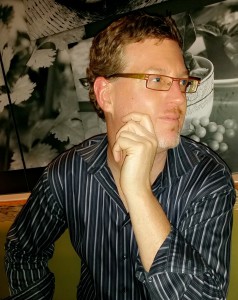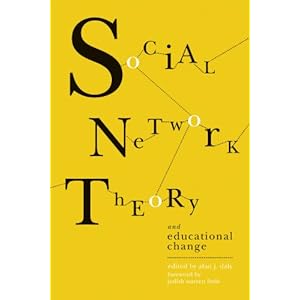 We are very excited to announce the Keynote Speaker for the conference:
We are very excited to announce the Keynote Speaker for the conference:
Alan J. Daly
University of California, San Diego
“Leading, Learning, and Innovating in an Interdependent System”
Keynote Description:
Although efforts at improvement are documented and monitored through plans and reports, change does not necessarily result from these formal plans and blueprints, but rather occurs in the interaction of individuals. Change processes and learning ultimately emerge and are maintained through interpersonal relationships, and it is the interdependence of relational ties that may ultimately moderate, influence, and even determine the direction, speed, and depth of a change. Therefore, recognizing the quality of social ties between and among learners is important in understanding how change really happens. This perspective entails moving beyond the “human capital” of the individual (experience, training, education) to making better use of the more dynamic supports and constraints of the larger social “infrastructure” in which individuals resides. The idea driving this more relational approach is both a research based and intuitive one; relationships matter in very central ways to the work of change. In the end we are all social beings and that sociability does not stop outside the college door or even the community for that matter. So the true work of active learning and change, educational and otherwise, is about shifting a community of learners to become a community that learns, unifies, and is poised for change and innovation. This orientation also suggests the importance of shifting from a win-lose perspective to creating systems that support win-LEARN as a way to meet goals.
Alan J. Daly, Ph.D. is Professor and Chair of the Department of Education Studies at the University of California, San Diego. He graduated from Clark University with a Bachelors of Arts in Psychology, received a Masters of Science in Counseling from San Diego State University, and a Master of Arts and Ph.D. in Education with an emphasis in Educational Leadership and Organizations from the University of California, Santa Barbara. Prior to coming to the university Alan had over 16 years of public education experience in a variety of positions ranging from classroom teacher to district psychologist to site administrator. Alan has presented at the local, state, national, and international level regarding his practical and research work in organizational learning, policy implementation, social networks, and educational reform. His research and teaching primarily focuses on leadership, educational policy and change, and social network theory and analysis. He has over 60 publications and a recent book published by Harvard Press entitled, Social Network Theory and Educational Change and a second under contract with Harvard entitled, Networked Systems: Improving Educational Systems in the 21st Century. You can learn more about his work here:
http://ucsd.academia.edu/AlanDaly

Daly, A. (2010). Social network theory and educational change. Harvard Education Press
From Amazon: “Social Network Theory and Educational Change offers a provocative and fascinating exploration of how social networks in schools can impede or facilitate the work of education reform. Drawing on the work of leading scholars, the book comprises a series of studies examining networks among teachers and school leaders, contrasting formal and informal organizational structures, and exploring the mechanisms by which ideas, information, and influence flow from person to person and group to group. The case studies provided in the book reflect a rich variety of approaches and methodologies, showcasing the range and power of this dynamic new mode of analysis. An introductory chapter places social network theory in context and explains the basic tools and concepts, while a concluding chapter points toward new directions in the field. Taken together, they make a powerful statement: that the success or failure of education reform ultimately is not solely the result of technical plans and blueprints, but of the relational ties that support or constrain the pace, depth, and direction of change. This unique volume provides an invaluable introduction to an emerging and increasingly important field of education research.”

